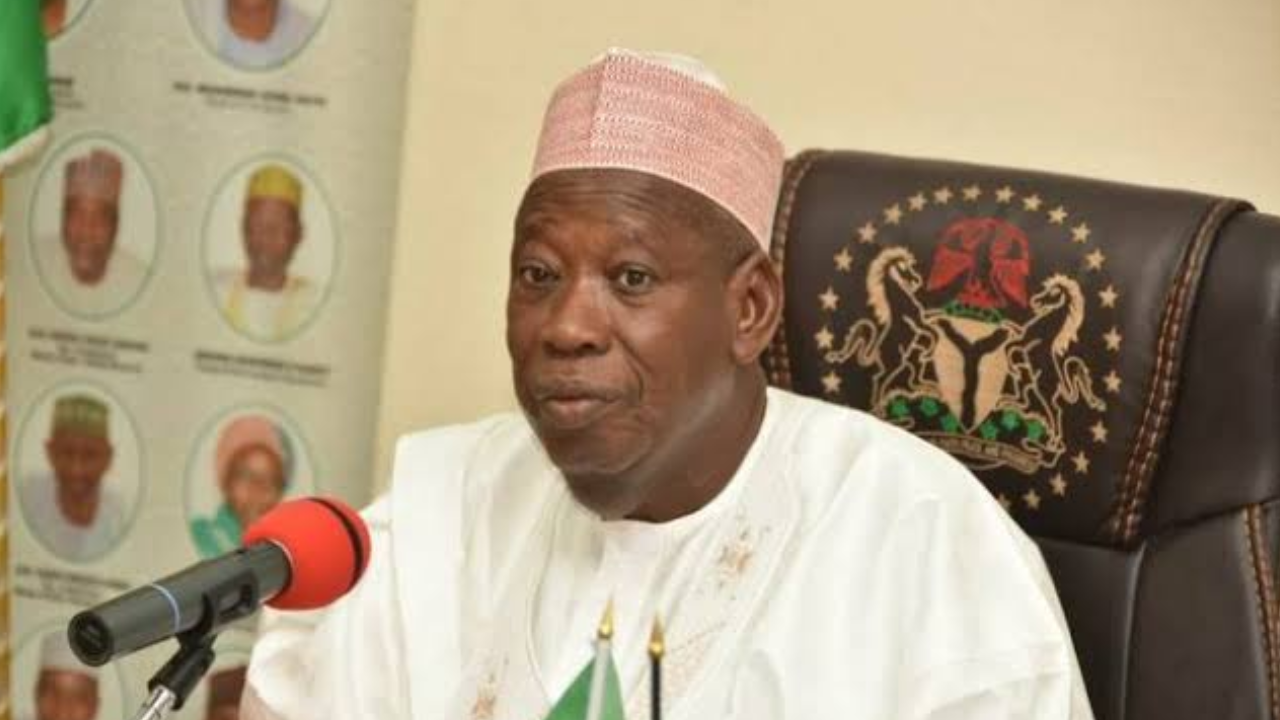
Power Struggle Intensifies in Kano APC Following Ganduje's Resignation
The abrupt resignation of Abdullahi Umar Ganduje as the National Chairman of the All Progressives Congress (APC) has triggered a new phase of political maneuvering within the party, particularly in Kano. This development has not only created a leadership vacuum at the national level but also intensified rivalries among key figures vying for control in one of Nigeria’s most politically significant states.
At the center of this power struggle is Senate Deputy President Barau Jibrin, who is now seen as the most prominent figure in Kano APC. His influence has grown significantly due to the influx of defectors from the Kwankwasiyya Movement, which has strengthened his position in recent months. Analysts believe that Barau’s growing support could position him as the de facto leader of the party in Kano if Ganduje steps back or is offered a federal role.
However, Barau is not the only contender. Former deputy governor and 2023 APC governorship candidate Nasiru Yusuf Gawuna, along with his running mate Murtala Sule Garo, two federal ministers from the state, and current Kano APC chairman Abdullahi Abbas are all emerging as major players in the contest for dominance.
Gawuna, despite being the party’s last gubernatorial candidate, may not have the same level of influence as others. His failure to secure a ministerial appointment is seen as a strategic move to weaken his chances of winning the 2027 nomination without federal backing. Meanwhile, Murtala Sule Garo, who was a key architect of Ganduje’s political movement, is believed to control a strong political network across Kano.
Intriguingly, Garo and Barau both hail from Kabo Local Government Area and are reportedly on poor terms, further complicating the internal dynamics of the party.
Two ministers from Kano—Mariya Mahmud and Yusuf Ata—are also seen as proxies for different factions within the APC. Mariya Mahmud, a former Ganduje commissioner, was recommended for her federal post by Ganduje, while Yusuf Ata is believed to have been nominated by Barau.
Abdullahi Abbas, the current APC chairman in Kano and a long-time Ganduje loyalist, is another potential player. He has led the state party since 2018 and is rumored to be eyeing the 2027 governorship, even though he remains aligned with Ganduje for now.
Speculation About Kwankwaso's Possible Return
Outside the immediate APC structure, there are growing rumors that Ganduje’s resignation was orchestrated to pave the way for Senator Rabiu Musa Kwankwaso to rejoin the party. If this materializes, it could shift the balance of power towards the Kwankwasiyya faction, with Kwankwaso likely assuming de facto control. However, under APC rules, Kano’s Governor Abba Kabir Yusuf would be recognized as the formal party leader if he joins alongside his mentor.
Kwankwaso has long been speculated to consider a return to the APC, possibly with ambitions of securing the vice-presidential ticket in 2027. In 2023, President Tinubu reportedly asked Ganduje to negotiate Kwankwaso’s return, but the former NNPP presidential candidate rejected the idea, insisting he would not rejoin the APC while Ganduje remained chairman.
Kwankwaso and Ganduje were once close allies, having won Kano’s governorship elections together in 1999 and again in 2011. However, their relationship soured after Ganduje succeeded Kwankwaso in 2015, leading to Kwankwaso’s departure from the APC. Since then, he has not returned to the same party as Ganduje.
Political observers believe that President Tinubu may now be looking to Kwankwaso’s popularity and his control over Kano through the New Nigerian People’s Party (NNPP) to strengthen support for the next presidential election.
Expert Insight on Political Dynamics
Renowned political scientist Professor Kamilu Sani Fage emphasizes that the future of the APC in Kano depends on who can strategically fill the power vacuum left by Ganduje’s resignation. He notes that if Ganduje was forced out without compensation, it could confirm fears that he has been used and discarded by the presidency.
Fage highlights that Ganduje lacks the deep grassroots infrastructure that figures like Kwankwaso possess, which could diminish his political relevance if he does not receive a new federal appointment. He also suggests that Barau, who is not closely aligned with Ganduje, may now have more freedom to pursue his 2027 governorship ambitions.
Despite these developments, Fage warns that any lasting shift in power will depend heavily on how key political actors realign in the coming months. The possibility of Kwankwaso or Governor Yusuf joining the APC could significantly alter the political landscape in Kano.
Fage concludes that the real reasons behind Ganduje’s resignation remain speculative. He argues that if he was forced out for certain reasons, he might not gain any benefits, reflecting the often transactional nature of Nigerian politics. “If Kwankwaso or someone else offers more strategic value, Tinubu may well switch allegiance,” he said.
Post a Comment